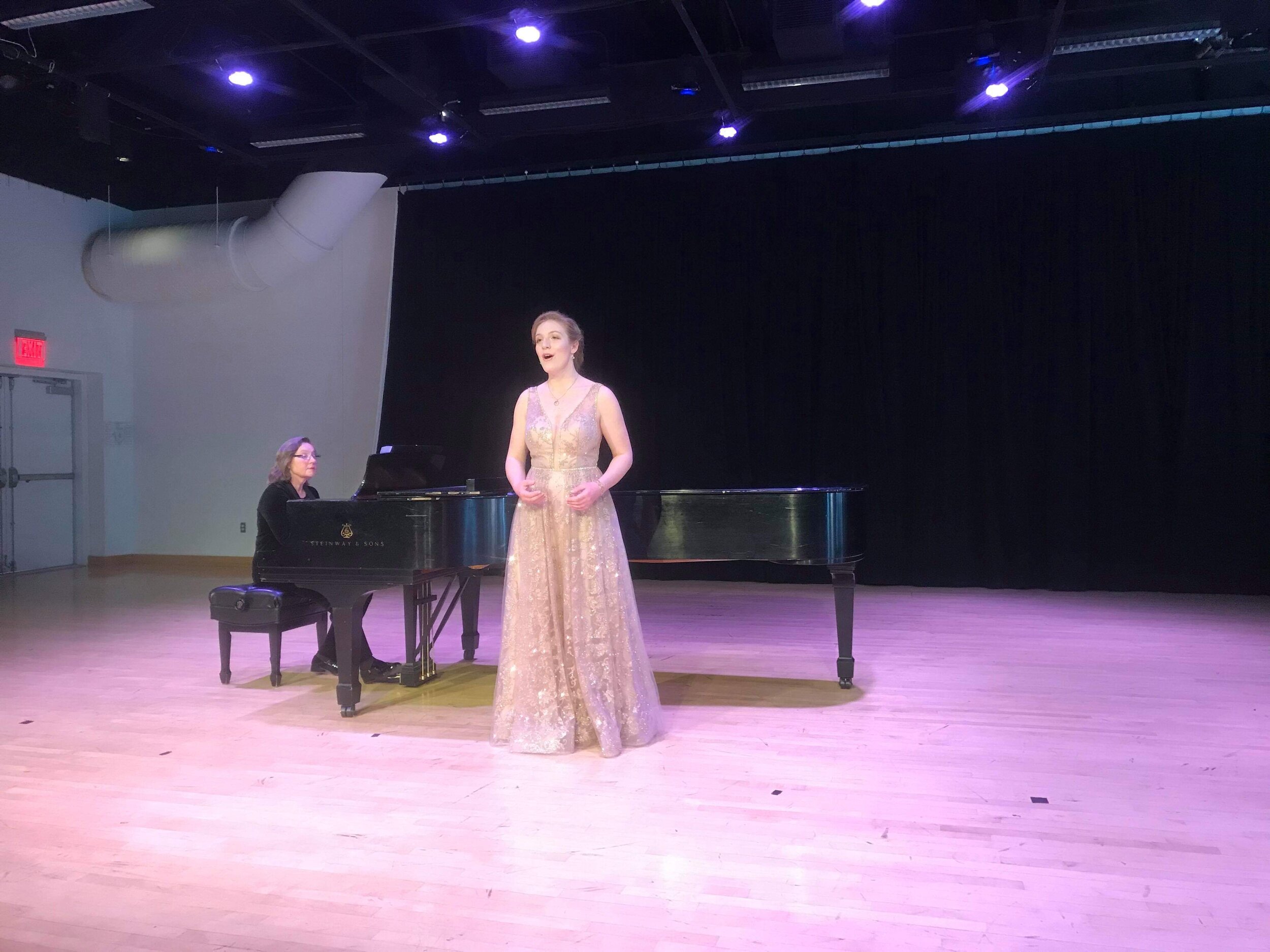
The Unheard Voice
To culminate my time at the Boston Conservatory at Berklee, I curated an hour-long recital meant to represent four different languages and eras of vocal repertoire. I thought it was the perfect opportunity to explore a new repertoire and decided to theme the recital around music by composers who are often overlooked in the traditionally patriarchal society that is classical opera. I settled upon the idea of “The Unheard Voice”, and created an entire recital of music by women, about women, and by queer and non-binary composers. I explored composers from the Baroque era to contemporary classical music with three new premieres of student works.
Click the button below to view the full recital on YouTube.
“Se non piange un infelice”
By Louise Reichardt (1779-1826)
This piece was a part of my Italian set, alongside “Per la più vaga e bella” by Francesca Caccini (1587-1641), and “Povera cor tu palpiti” by Isabella Colbran (1785-1845). I was accompanied by Anne Tripp Miller.
I quickly realized in my endeavor just how many female composers were remembered because of their connection to a renowned male composer. Francesca Caccini was the daughter of composer Giulio Caccini and is usually mentioned in that context instead of being known as the first woman to have her operas performed, or for her successful career in the Medici court as a teacher, performer, and composer. Louise Reichardt and Isabella Colbran, both musicians and self-taught composers are remembered for their connection to men: Reichardt’s success is connected to her father, a patron of the arts, and Colbran was a successful soprano in Rossini’s operas, originating many of his roles and eventually marrying the renowned composer.
“Die Stille Lotusblume”
By Clara Schumann (1819-1896)
This piece was presented in my German set, along with Clara Schumann’s other works “O lust, o lust”, “Liebst du um Schönheit”, and “Die Lorelei”. I was accompanied by Anne Tripp Miller
Clara Schumann, who had a rare, supportive relationship with her husband, was brought to international fame as a child prodigy by the efforts of her father. While she went on to be the main breadwinner for her family following Robert’s mental health issues, supporting her children and her family with her career as a concert pianist, teacher, and composer, it is still Robert’s music that is remembered better today.
“Reflets”
By Lili Boulanger (1893-1918)
This piece was presented along with “La belle au bois” by Jane Vieu (1871-1955), “Fleur desséchée” by Pauline Viardot (1821-1910), and “Cantique” by Nadia Boulanger (1887-1979).
In addition to performing traditional works by female composers, I performed three new works by student composers who are just starting out in the music industry. The set included “Come In” by Peter Fletcher (he/him), “Thorns” by Blake Dylan Pilger (they/them), and “A Noiseless Patient Spider” by Julian Kornick (they/them).
“Thorns”
Composed by Blake Dylan Pilger (they/them). Text by Abigail Whitman. This performance was a world premiere of the piece.
“Abigail provided text for this piece, which was based on these lines that I wrote: “Thorns in the bushes do just as they please/Staying on guard as they scrape off your knees.” I wanted her to expand on this idea, and write a stream of consciousness passage to extend the metaphor I created. When I set Abigail’s text, I made sure to listen to the recording of her speaking it and wanted to match its inflection as much as possible. The piece grew to be set in a stream-of-consciousness form, with many recitative-like sections.”
--Blake Dylan Pilger
Click the button below to listen to more of Blake’s work.
